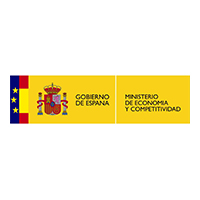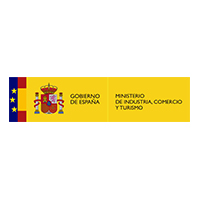LATEST R&D&i PROJECTS
FINISHED PROJECTS
MOBEEZE – Natural Interaction System for analysis and rehabilitation of gait disorders in Parkinson’s patients.
The Objective of this project was:
- To promote the rehabilitation of walking disorders in patients with Parkinson’s disease, providing healthcare personnel with a tool for analysing, evaluating and monitoring these disorders and allowing them to personalise and adapt the sessions in real time.
Funded by the Ministry of Economy and Competitiveness through the State R&D&I program Oriented to the Challenges of Society. Grant number. RTC-2015-3870-1.
VIRTUALREHAB – Cloud platform for telerehabilitation of neurodegenerative diseases
The Objective of this project was:
- To develop a cloud-based telerehabilitation platform to improve neurodegenerative diseases, combining the use of therapeutic video games with advanced motion capture devices.
Funded by the State Secretariat for Research, Development and Innovation within the SME Horizon grants for the year 2015. State Programme for Business Leadership within the framework of the State Plan for Scientific and Technical Research and Innovation 2013-2016. Ministry of Economy and Competitiveness. Grant number. SME-2015-0522.
SINCROAPPS TV – Synchronization system for TV programs and mobile applications in real time for 3.0 audience content.
The Objective of this project was:
- To develop an experimental system that links a television program (programs, series, contests, advertising, etc.), with digital applications or videogames that are received or executed through television and mobile devices in a synchronized way with the program.
Funded by the Ministry of Industry, Energy and Tourism. Digital Economy and Society Strategic Action Programme. Grant Number. TSI-100600-2014-19
INTERPLAY – Advanced videoConsola adapted to the playful rehabilitation of children with neuromotor disability
The Objective of this project was:
- To develop a new video console system that uses alternative channels of interaction, based mainly on the movement of the body, the gaze and the arms.
The system, composed of person-computer interfaces and video games adaptable to the specific condition of the user, offered the child stimulating recreational and functional tasks that constituted rehabilitation and follow-up exercises.
It helped to develop new activities of early attention in children with neuromotor disability and to develop to the maximum their physical and cognitive capacities.
Funded by the Ministry of Economy and Competitiveness. State R+D+i Programme Oriented to the Challenges of Society. Grant number. RTC-2014-1812-1.



